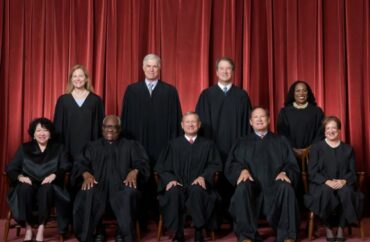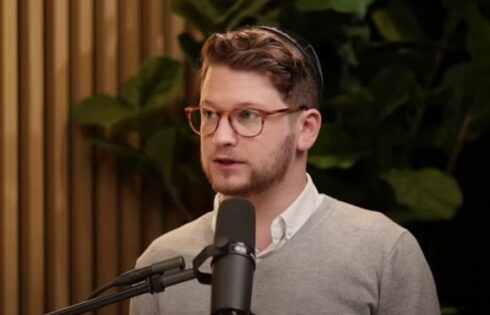
OPINION: Academics want the Supreme Court to uphold prohibitions on transgender drugs and surgeries for minors
The Supreme Court should allow states to protect minors from transgender drugs and surgeries, a group of scholars said.
Today, the Court is hearing arguments in U.S. v. Skrmetti, a case concerning Tennessee and Kentucky’s prohibition on minors receiving drugs and surgeries to change their physical appearance to look like the opposite sex.
Current and former professors, many of whom are known to readers of The College Fix, argued that sex is a “natural reality,” in an amicus brief.
They drew on their experience as scholars of science, theology, history, and philosophy, to make their argument.
Signers include Boise State University political scientist Scott Yenor, Amherst College emeritus Professor Hadley Arkes, Arizona State University Professor Owen Anderson, and Erika Bachiochi of the Ethics and Public Policy Center.
“The crucial human question posed by this case is whether ‘sex’ is an objective, non-arbitrary and natural reality and whether it is properly and organically rooted in the body’s sexual dimorphism,” they wrote. “Only this non-arbitrary character allows recognition of the individual person as a whole.”
On the other hand, the pro-transgender side argues the mind and body are separate.
“Petitioner’s arguments would have the Court adopt one such doctrine: a philosophical anthropology of fragmentation, in which the mental aspects of sex have almost entirely displaced the meaning of the body and organic wholeness of the person,” the signers warn.
They also criticized the fluidity of “gender identity.”
“Under Petitioner’s argument, ‘sex’ in any normal or traditional sense of the word has simply disappeared from the horizon,” the amicus argues. “All that is left is ‘identity,’ accompanied by a set of arbitrary and contingent elements or parts.”
They also criticized the pro-transgender side for dismissing the value of reproduction and how people’s bodies are naturally ordered to an end.
The petitioners argued that concerns about fertility problems following drugs and surgeries can be ameliorated by preserving eggs or sperm prior to starting the interventions.
As the scholars explained:
Here again, simple natural and organic bodily integrity, growth, and health are dramatically undervalued. The implication is that what most would consider a vital function is interchangeable with medical technologies, suggesting that the body has been reduced, machine-like, to the interrelation of parts that can be swapped out and replaced without much consequence.
The brief continues with a history of the gender ideology movement, including the harms wrought by John Money. (For more on him, read this article).
The Supreme Court should uphold the prohibitions on drugs and surgeries.
There is no right to have healthy reproductive organs removed or take drugs to stop puberty (which can be dangerous, according to medical experts).
Rather, our law should recognize biological sex and uphold the dignity of each human being.
MORE: ASU professor condemns ‘anti-trafficking’ movement
IMAGE: Fred Schilling/Supreme Court
Like The College Fix on Facebook / Follow us on Twitter







Please join the conversation about our stories on Facebook, Twitter, Instagram, Reddit, MeWe, Rumble, Gab, Minds and Gettr.